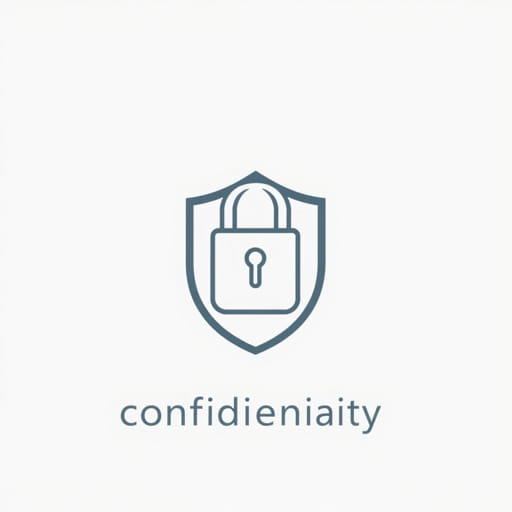Confidentiality plays a critical role in maintaining trust across various professional and personal relationships. Whether in healthcare, business, law, or education, confidentiality ensures that sensitive information is protected from unauthorized access. Individuals and organizations are often legally and ethically required to respect confidentiality to safeguard personal data and maintain professional integrity. Understanding real-world examples of confidentiality can help clarify how these obligations apply in practice.
Understanding the Concept of Confidentiality
Confidentiality involves the obligation to keep certain information private and not disclose it to others without consent. This duty can arise from professional codes of conduct, employment contracts, data protection regulations, or specific laws. Breaching confidentiality can lead to disciplinary action, legal consequences, and a loss of trust or reputation.
Types of Confidential Information
Confidential information may include:
- Personal data such as names, addresses, or health records
- Financial information, including income or credit card numbers
- Business trade secrets, plans, and intellectual property
- Legal communications protected under attorney-client privilege
- Educational records or private academic performance
Each of these types of information is protected in different ways, depending on the context and the governing laws or policies involved.
Examples of Confidentiality in Healthcare
Healthcare professionals have a legal and ethical duty to protect patient confidentiality. This includes safeguarding medical records, personal identification, and treatment details. The Health Insurance Portability and Accountability Act (HIPAA) in the United States is one of the most recognized laws that enforce this duty.
Common Healthcare Scenarios
- A nurse does not share a patient’s diagnosis with unauthorized personnel.
- A doctor discusses a patient’s condition only with the patient and authorized family members.
- A hospital ensures all patient files are stored securely and only accessible by approved staff.
Violating medical confidentiality may result in professional disciplinary measures or legal penalties, especially if sensitive data is improperly disclosed.
Examples of Confidentiality in the Workplace
Employees are often expected to keep certain information confidential as part of their job. This may be reinforced through confidentiality agreements or company policy. Breaching workplace confidentiality can result in termination or legal action for violating trade secret laws.
Workplace Situations Where Confidentiality Applies
- Human resource managers maintaining the privacy of employee disciplinary records.
- Finance staff protecting company bank accounts and payroll data.
- IT staff ensuring that client data and passwords remain secure.
- Employees refraining from disclosing future business strategies or proprietary systems to competitors.
Employers may implement training sessions to educate staff about the importance of maintaining confidentiality in daily operations.
Examples of Confidentiality in Legal Settings
Legal professionals, especially lawyers and paralegals, are bound by attorney-client privilege, which ensures that anything a client shares is not revealed without permission. This protection encourages clients to speak freely and honestly with their legal counsel.
Legal Confidentiality in Action
- An attorney does not disclose a client’s confession to any third party without the client’s consent.
- Paralegals working on sensitive cases keep all documents secure and private.
- Confidential settlement agreements are not shared outside of court unless both parties agree.
Confidentiality in the legal field is crucial for ensuring justice and preserving the integrity of the legal process.
Examples of Confidentiality in Education
Educators and school administrators often handle sensitive information about students, including academic performance, behavioral records, and health concerns. Schools have a responsibility to protect this data in accordance with laws like the Family Educational Rights and Privacy Act (FERPA) in the U.S.
School-Based Confidentiality Practices
- A teacher does not share a student’s grades with other students or parents without permission.
- A school counselor keeps a student’s personal disclosures private, unless there is a safety concern.
- Administrators store student records in secure systems with access limited to authorized personnel.
Confidentiality in education supports a safe and respectful learning environment, ensuring that students can receive support without fear of exposure or judgment.
Examples of Confidentiality in Research
Researchers frequently collect private information from participants during studies. Ethical guidelines and institutional review boards require that this data be protected to maintain the confidentiality of participants.
Research Confidentiality Examples
- Identifying details are removed from published research reports.
- Participant data is stored in encrypted databases accessible only to authorized researchers.
- Consent forms clearly explain how data will be used and who will have access.
Protecting participant confidentiality is essential for preserving trust and promoting honest responses in research environments.
Challenges in Maintaining Confidentiality
While confidentiality is a key principle in many fields, it is not without its challenges. Common issues include:
- Unauthorized access to digital records due to weak cybersecurity measures
- Accidental disclosures through casual conversation or social media
- Balancing confidentiality with the duty to report harm or criminal activity
Professionals must stay up to date on best practices and regularly assess how well confidentiality protocols are being followed.
When Confidentiality Can Be Broken
In some situations, confidentiality may be breached legally or ethically if there is a greater need to protect public safety or comply with law enforcement requirements. Examples include:
- A therapist reporting suspected child abuse to authorities
- A doctor informing public health officials about a contagious disease
- An employer disclosing internal fraud to regulators
Even in these cases, disclosures should be limited to what is necessary and handled with care to preserve the individual’s dignity and privacy as much as possible.
Confidentiality is a foundational principle across many sectors of society. From healthcare and law to education and business, safeguarding private information is essential to building trust, protecting rights, and maintaining ethical standards. By examining these real-world examples of confidentiality, individuals and organizations can better understand how to uphold their responsibilities and avoid unintentional breaches. As technology continues to evolve, so too must our strategies for protecting sensitive data in every context.
